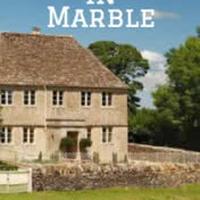The Haunted Dolls' House (2)
The hours of night passed very slowly, thought Mr Dillet. He slowly moved from sitting to lying in his bed, but he didn't close an eye. Early next morning he sent for the doctor.
The doctor found him uneasy and nervous, and said that sea air was the answer. So Mr Dillet was driven slowly to a quiet place on the east coast.
One of the first people he met as he walked along by the sea was Mr Chittenden, who had also been told to take his wife away for a change of air.
'I'm a little upset with you,' said Mr Dillet.
'I'm not surprised, sir. My wife and I went through a lot ourselves. But what could I do? I couldn't throw the thing away - it was a really nice piece. And I couldn't really tell a buyer, "I'm selling you a haunted doll's house which will always come to life at one o'clock in the morning." I didn't want people to think me and my wife were crazy.'
'Will you buy it back from me?'
'No thanks! I'll tell you what, though. I'll pay you back what you gave for it, except the ten pounds I paid, of course. And you can do what you want with it.'
Later in the day the two men had another whispered conversation in the smokers' room at their hotel.
'Tell me, how much do you know about that thing, and where it came from?'
'Honestly, Mr Dillet, I don't know the house. Of course it came out of an old country house, that's clear. I've got a feeling it was from somewhere not far from this place. The man I bought it from isn't one who usually sells to me, and I haven't seen him since then. But this was his part of the country. And that's all I can say about it.
'But, Mr Dillet, I've got a question. The old man who drives up to the door - you've seen him, haven't you? Ah yes, I thought so. Do you think he was the doctor or the lawyer? My wife says the doctor, but I say the lawyer because of all the papers in his bag, and the one he took out last but didn't open.'
'I agree,' said Mr Dillet. 'I think that was the old man's will, ready for him to write his name at the bottom.'
'I thought the same,' replied Mr Chittenden. 'Probably a will that didn't leave any of the old man's money to the younger ones. But it's taught me something. I won't buy any doll's houses again, or spend time and money at the cinema. And about the idea of poisoning grandad, well, I couldn't do it. I prefer to live happily with my relatives - always have done, always will do.'
The next day Mr Dillet went to the town museum. He wanted to try and find the house at the heart of the mystery. He looked at lots of old pictures of houses on the walls, but couldn't see his house among them. He looked through lots of old church records but again he had no luck. Then, in an almost empty room, he saw an old model of a church which made his heart grow suddenly cold. It looked like more work by the same man who had made his doll's house. He read the small notice in front of it carefully.
This model of Saint Stephen's Church, Coxham, was given to the museum by Mr J Merewether of Ilbridge House in 1877.
It is the work of his ancestor, James Merewether, 1786.
He went back to look at a map of the country nearby that he'd noticed earlier on the wall. There he saw that Ilbridge house was in the village of Coxham. Then he went back to the old church records and soon found the funeral of Roger Milford, aged 76, on the 11th of September 1757, and of Roger and Elizabeth Merewether, aged 9 and 7, on the 19th of the same month. Although he wasn't sure this was the family, it seemed worth visiting Coxham, and so he drove there that afternoon.
In the north of the church there was a Milford chapel. In it there was a stone to the memory of Roger Milford:
'Father, and successful lawyer'. 'This stone was put here by his loving daughter Elizabeth, who died soon after losing her caring father and her dear children,' it said.
The last words had obviously been added later.
In the chapel too, a later stone spoke of,
'James Merewether, husband of Elizabeth, who - when a young man - was a promising architect, but who stopped this work on the death of his wife and children, and who ended his days in a comfortable retirement home.'
The children had smaller, less grandly-worded stones. They'd both died on the night of the 12th of September.
Mr Dillet felt sure that in Ilbridge House he'd found the place where it had all happened. In some old picture some day perhaps he'll find he's right. But the Ilbridge House of today is not the house he was looking for. It's a newer red-stone house which was built in the 1840s.
Not far from the new house, in a lower part of the garden, near some old trees, is a terraced platform covered with grass. That, someone told Mr Dillet, was the place where the old house had once stood.
As he drove out of the village, the church clock sounded four, and Mr Dillet put his hands over his ears. It was not the first time that he'd heard that bell.
These days, waiting for an American buyer, the doll's house rests, carefully covered, in the upstairs room over Mr Dillet's stables. It was taken there by his butler on the day that he left for the seaside.
- THE END -

